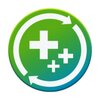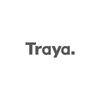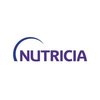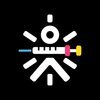
i
Fitelo
Filter interviews by
Fitelo Dietician Interview Questions and Answers
Fitelo Dietician Interview Experiences
13 interviews found
I applied via LinkedIn and was interviewed in May 2024. There was 1 interview round.
(2 Questions)
- Q1. About diabetes management and diet
- Q2. About PCOS and thyroid management
Interview Preparation Tips
- diabetes
- PCOS
- Thyroid
I applied via LinkedIn and was interviewed in Jun 2024. There was 1 interview round.
(1 Question)
- Q1. How to counsel patient if they what to have olive oil
Interview Preparation Tips
I appeared for an interview in Nov 2023.
(3 Questions)
- Q1. What is seed cycling?
- Q2. What is difference between pcod and pcos?
- Q3. What is metabolism / basal metabolic rate?
(2 Questions)
- Q1. What are you long term goals? are you interested in research?
- Q2. Are you willing to bring profits/sales to the company?
Interview Preparation Tips
(2 Questions)
- Q1. What ia nutrition
- Q2. What is fitness
- Ans.
Fitness is the state of being physically fit and healthy, achieved through regular exercise and proper nutrition.
Fitness involves cardiovascular endurance, strength, flexibility, and body composition.
Regular exercise such as running, weightlifting, or yoga can improve fitness levels.
Proper nutrition plays a key role in maintaining fitness by providing the body with essential nutrients.
Fitness is not just about physical...
Interview Preparation Tips
(2 Questions)
- Q1. Regarding previous experience and educational qualification
- Q2. Be prepared with your basics
Interview Preparation Tips
I applied via Indeed and was interviewed before May 2023. There was 1 interview round.
(2 Questions)
- Q1. Tell me about your self Why do you want to join our organization What are your weaknesses
- Q2. Can you work under pressure?
Interview Preparation Tips
- Therapeutic diet
- Seed cycle
I applied via Approached by Company and was interviewed in Apr 2023. There were 3 interview rounds.
(1 Question)
- Q1. Questions were related to clinical nutrition
(1 Question)
- Q1. Topics related to Diabetes, thyroid, PCOS/PCOD, hypertension etc
(1 Question)
- Q1. In 3rd round they will check your communication skills
Interview Preparation Tips
I applied via Naukri.com and was interviewed in Dec 2022. There were 2 interview rounds.

(3 Questions)
- Q1. Ask the basic questions related to nutrition, lifestyle disorders, nutrients deficiency, which food /stuffs should to be avoid or to be taken, etc
- Q2. Dietary Guidelines for lifestyle disorders
- Q3. Dietary Guidelines for nutrients deficiency disorder, disease
Interview Preparation Tips
- Pcod
- Pcos
- Fatty liver
- diabetes
- Thyroid
- Hypertension
I applied via Approached by Company and was interviewed before Apr 2023. There were 3 interview rounds.
(1 Question)
- Q1. Ask about candidate
Case study on client handling
(1 Question)
- Q1. Confidence to tackle the situation
I applied via Indeed and was interviewed before Oct 2023. There were 2 interview rounds.
(2 Questions)
- Q1. Previous experience and questions related to nutrition
- Q2. How much salary package was expected
(2 Questions)
- Q1. Situation based questions and how to handle it
- Q2. Why did you choose this job at fitelo
- Ans.
I chose this job at Fitelo because of their focus on holistic health and personalized nutrition plans.
Fitelo's emphasis on holistic health aligns with my belief in treating the whole person, not just symptoms.
I appreciate Fitelo's approach to creating personalized nutrition plans for each individual, as it allows for tailored care.
The positive reviews and success stories from clients who have worked with Fitelo motivat...
Interview Preparation Tips
Top trending discussions






Fitelo Interview FAQs
The duration of Fitelo Dietician interview process can vary, but typically it takes about less than 2 weeks to complete.
Tell us how to improve this page.
Fitelo Interviews By Designations
- Fitelo Dietician Interview Questions
- Fitelo Sales Executive Interview Questions
- Fitelo Relationship Manager Interview Questions
- Fitelo Nutritionist Interview Questions
- Fitelo Bams Doctor Interview Questions
- Fitelo Data Scientist Interview Questions
- Fitelo Business Development Executive Interview Questions
- Fitelo Senior Sales Executive Interview Questions
- Show more
Overall Interview Experience Rating
based on 15 interview experiences
Difficulty level
Duration
Interview Questions from Similar Companies
Fitelo Dietician Reviews and Ratings
based on 85 reviews
Rating in categories
|
Dietician
129
salaries
| ₹2 L/yr - ₹4.5 L/yr |
|
Sales Executive
48
salaries
| ₹2.8 L/yr - ₹5 L/yr |
|
Assistant Manager
33
salaries
| ₹3 L/yr - ₹6.8 L/yr |
|
Social Media Executive
15
salaries
| ₹3 L/yr - ₹4.5 L/yr |
|
Nutritionist
14
salaries
| ₹2.7 L/yr - ₹3.8 L/yr |

Cult.fit
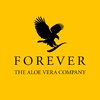
Forever Living Products

Amway India Enterprises

Vestige
- Home >
- Interviews >
- Fitelo Interview Questions




